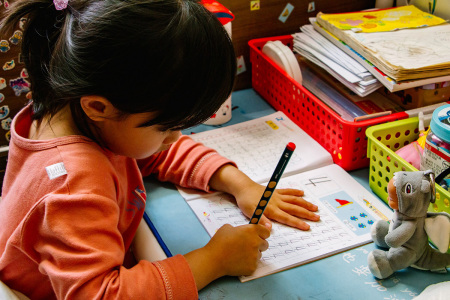School choice debate ensues in Texas gubernatorial race as enrollment declines nationwide

The ongoing debate over school choice has become an emerging topic in the Texas gubernatorial race as thousands of students nationwide have left public schools, invoking discussions on how such policies could impact student outcomes and school districts.
Republican Gov. Greg Abbott voiced support for school vouchers in May, arguing that parents should be allowed to use taxpayer dollars to send their children to the school of their choosing.
However, Abbott's Democratic challenger, former Congressman Beto O'Rourke, is voicing concerns that such policies could cripple traditional public schooling in certain areas.
As The Texas Tribune reported last month, O'Rourke's campaign has spent around $40,000 on newspaper advertisements, warning voters that they should not "let Greg Abbott privatize public education in Abilene."
In July, O'Rourke claimed during a speech directed toward rural Texans that the current governor has "left behind" some rural communities.
"For our rural communities, where there's only one school district and only one option of public school, he wants to defund that through vouchers, take your tax dollars out of your classroom and send it to a private school in Dallas or Austin or somewhere else at your expense," O'Rourke said.
The Houston-based KHOU-11 reported in August that Abbott is looking to motivate his conservative base on education issues with a strong focus on school choice and vouchers.
The race's focus on school choice comes as American public school systems have hemorrhaged students since the COVID-19 pandemic began in 2020. According to a report from the nonpartisan research group Education Next, 2 million fewer students are enrolled in non-charter public schools since spring 2020, when many states and localities shut down in-person instruction at public schools.
Arizona adopted one of the most expansive school choice laws in the nation in July, a law school choice proponents hope will be a model for other states.
The law ensures all K-12 students in the state are eligible for scholarship funds, with families participating in the program receiving $6,500 a year per child for private school, homeschooling, tutoring, or micro-schools.
Jason Bedrick, a research fellow for the Center for Education Policy at The Heritage Foundation, a Washington-based conservative think tank, argued in a Thursday statement to The Christian Post that O'Rourke is focused on systems instead of students.
The research fellow also said the comments from Abbott's challenger show a lack of confidence in public schools, as the only way they would lose money is if parents moved their kids elsewhere.
"The reality is that most people are satisfied with their local district school, so school choice policies have not produced a mass exodus," Bedrick wrote. "However, no one school can best meet the needs of all students. When a student's assigned school just isn't the right fit, school choice can be a godsend."
Bedrick claimed that school choice is one of the most-studied education policies and the results are "overwhelmingly positive."
Citing research from EdChoice, a nonprofit that advocates for school choice, Bedrick argued that some benefits of school choice policies include raised test scores and increased racial integration. According to EdChoice, there were at least 76 private school choice programs operating in 32 states, Washington, D.C. and Puerto Rico with over 600,000 students participating as of April 2022.
"School choice policies even have a positive effect on the performance of traditional public schools due to the healthy competition stemming from a much wider selection of education providers," he wrote.
"Choice policies are also associated with much higher levels of parental satisfaction and save taxpayers money."
EdChoice reports that in 17 random-assignment studies on the effects of school choice on students' test scores, 11 found positive outcomes for either the entire sample or at least one
sub-sample of students studied. Four found no visible effect, and three found negative outcomes for all or some of the students.
In seven studies on the effect of school choice on academic attainment, five found positive effects, two found no visible effect and no studies found any negative ones.
EdChoice also listed 28 studies of school choice's effects on public schools' performance. Twenty-five studies found this had a positive outcome for schools, one found no visible effect and two studies found negative effects.
In 11 studies assessing the effect of school choice on students' tolerance of others and civic knowledge, six studies found school choice policies were associated with positive outcomes in this regard. Reportedly, no studies provided by EdChoice found that school choice had a negative impact on students' civic values and practices.
The American Federation of Teachers contends that vouchers will primarily serve as tax breaks for wealthy families that can afford to send their kids to private schools.
Zeph Capo of Texas American Federation of Teachers told KHOU-11 in August that voucher programs "really haven't worked out well."
"As a matter of fact, most of the evidence shows that it's actually been a waste of money and it hasn't actually improved education," Capo is quoted as saying.





















